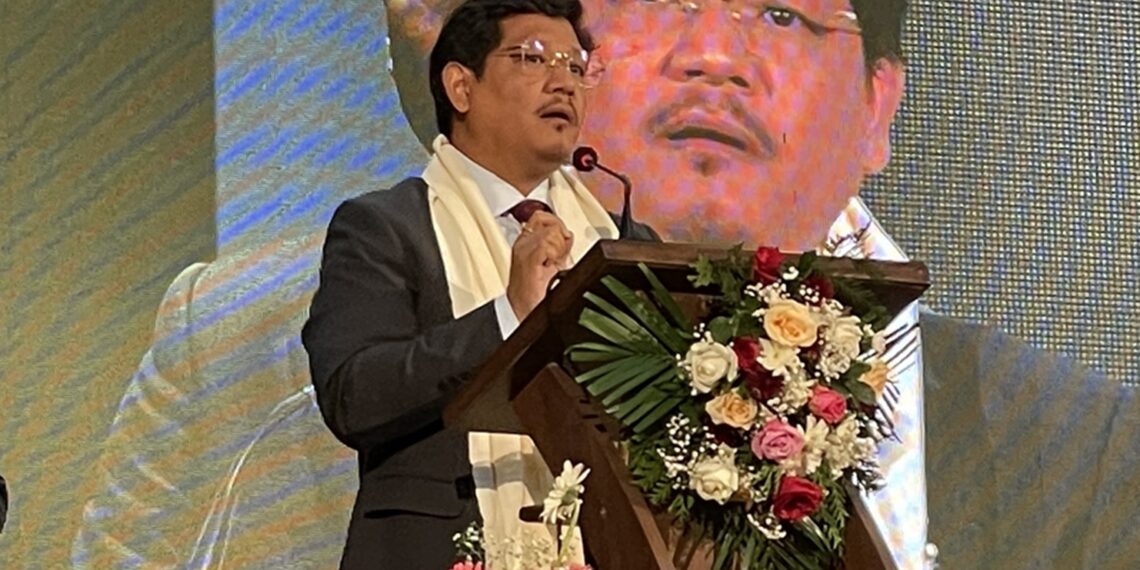SHILLONG: Chief Minister Conrad Sangma has unveiled a significant and visionary initiative aimed at the preservation and documentation of Meghalaya’s rich cultural heritage.
During the memorial lecture commemorating the death centenary of Babu Hajom Kissor Singh Nongbri at the U Soso Tham Auditorium in Shillong, he shared his plans to create a policy supporting writers, authors, and researchers in their efforts to document the state’s cultural richness and the lives of its eminent leaders.
“We have often observed that documentation and record-keeping in the state fall short of their potential,” he stressed. “Hence, I have decided to provide financial backing and support to writers, authors, and researchers. We are currently shaping this initiative, and we anticipate it will be fully operational within a month,” he said.
Sangma’s initiative is an invitation to writers and litterateurs to step forward and actively engage in capturing Meghalaya’s cultural essence.
The core of the Chief Minister’s vision is to provide the younger generation with a comprehensive historical narrative of Meghalaya’s revered leaders, securing their contributions and legacies for the benefit of future generations.
The memorial lecture, delivered by Sylvanus Lamare, a researcher scholar, delved into the life of Babu Hajom Kissor Singh Nongbri, going beyond his role as the founder of the Unitarian movement.
It highlighted his significant contributions to the Khasi language and his instrumental role in establishing Khasi as a medium of instruction and examination starting in 1902.
Following the enlightening lecture, Sangma pledged to explore the possibility of designating September 18 as Unitarian Day, responding to a request from the Unitarian Union North Eastern India (UUNEI) to recognise it as a regional holiday.
The event also featured additional addresses by Khasi author and professor Streamlet Dkhar, along with special performances by Unitarian Church groups.
Babu Hajom Kissor Singh Nongbri, remembered as a visionary leader, was instrumental in establishing schools that highlighted the significance of the three Rs – readings, writings, and arithmetic – while also imparting practical skills in carpentry, knitting, stitching, physical drills, and more.















